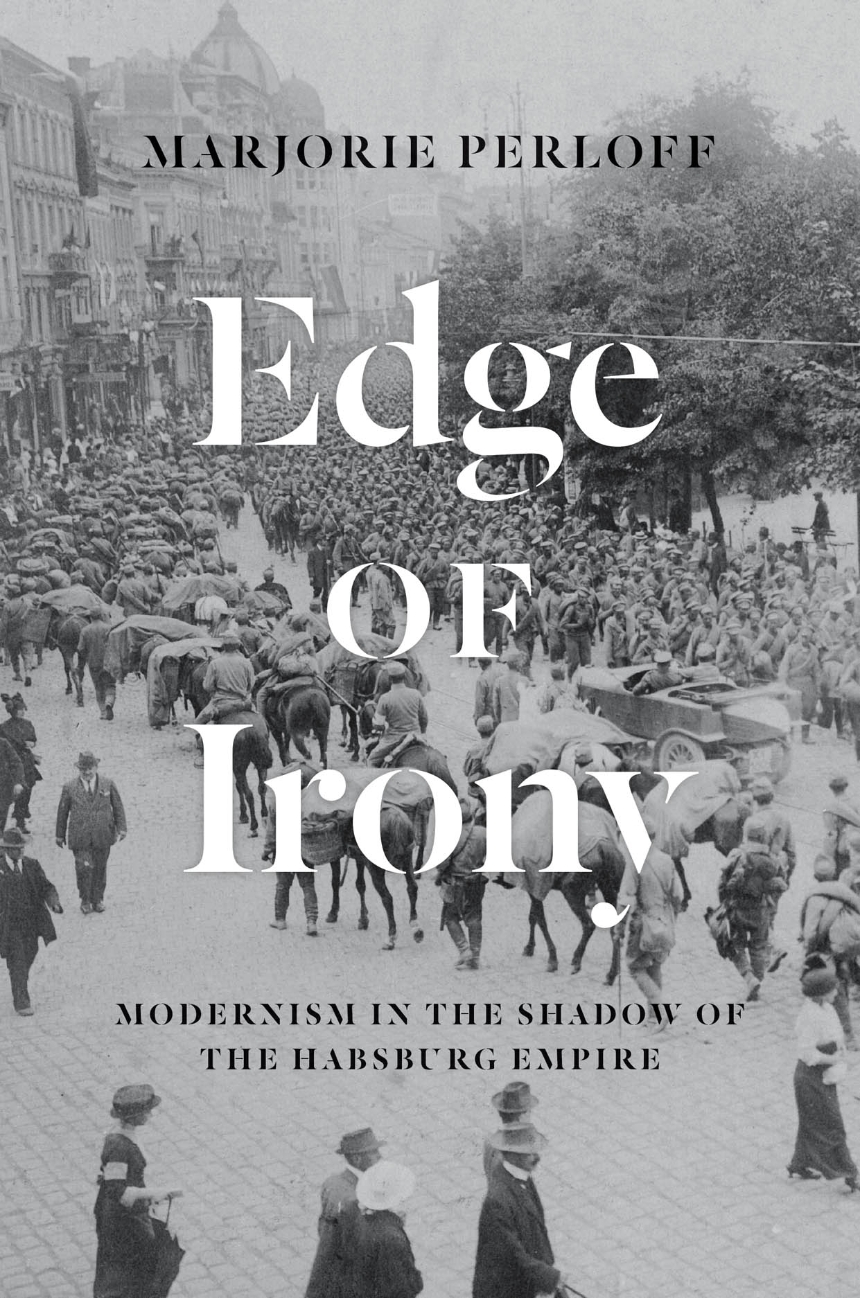Edge of Irony
Modernism in the Shadow of the Habsburg Empire
Among the brilliant writers and thinkers who emerged from the multicultural and multilingual world of the Austro-Hungarian Empire were Joseph Roth, Robert Musil, and Ludwig Wittgenstein. For them, the trauma of World War I included the sudden loss of the geographical entity into which they had been born: in 1918, the empire was dissolved overnight, leaving Austria a small, fragile republic that would last only twenty years before being annexed by Hitler’s Third Reich. In this major reconsideration of European modernism, Marjorie Perloff identifies and explores the aesthetic world that emerged from the rubble of Vienna and other former Habsburg territories—an “Austro-Modernism” that produced a major body of drama, fiction, poetry, and autobiography.
Perloff explores works ranging from Karl Kraus’s drama The Last Days of Mankind and Elias Canetti’s memoir The Tongue Set Free to Ludwig Wittgenstein’s notebooks and Paul Celan’s lyric poetry. Throughout, she shows that Austro-Modernist literature is characterized less by the formal and technical inventions of a modernism familiar to us in the work of Joyce and Pound, Dada and Futurism, than by a radical irony beneath a seemingly conventional surface, an acute sense of exile, and a sensibility more erotic and quixotic than that of its German contemporaries. Skeptical and disillusioned, Austro-Modernism prefers to ask questions rather than formulate answers.
Perloff explores works ranging from Karl Kraus’s drama The Last Days of Mankind and Elias Canetti’s memoir The Tongue Set Free to Ludwig Wittgenstein’s notebooks and Paul Celan’s lyric poetry. Throughout, she shows that Austro-Modernist literature is characterized less by the formal and technical inventions of a modernism familiar to us in the work of Joyce and Pound, Dada and Futurism, than by a radical irony beneath a seemingly conventional surface, an acute sense of exile, and a sensibility more erotic and quixotic than that of its German contemporaries. Skeptical and disillusioned, Austro-Modernism prefers to ask questions rather than formulate answers.
240 pages | 8 color plates, 26 halftones | 6 x 9 | © 2016
History: European History
Literature and Literary Criticism: General Criticism and Critical Theory, Germanic Languages
Reviews
Table of Contents
List of Illustrations
Preface
Introduction: The Making of Austro-Modernism
1. The Mediated War
Karl Kraus’s The Last Days of Mankind
2. The Lost Hyphen
Joseph Roth’s The Radetzky March
3. “The Subjunctive of Possibilities”
Robert Musil’s The Man without Qualities
4. Coming of Age in Kakania
Mother Tongue and Identity Theft in Canetti’s Autobiography
5. The Last Hapsburg Poet
Paul Celan’s Love Poetry and the Limits of Language
Coda: Becoming a “Different” Person
Wittgenstein’s “Gospels”
Notes
Index
Preface
Introduction: The Making of Austro-Modernism
1. The Mediated War
Karl Kraus’s The Last Days of Mankind
2. The Lost Hyphen
Joseph Roth’s The Radetzky March
3. “The Subjunctive of Possibilities”
Robert Musil’s The Man without Qualities
4. Coming of Age in Kakania
Mother Tongue and Identity Theft in Canetti’s Autobiography
5. The Last Hapsburg Poet
Paul Celan’s Love Poetry and the Limits of Language
Coda: Becoming a “Different” Person
Wittgenstein’s “Gospels”
Notes
Index
